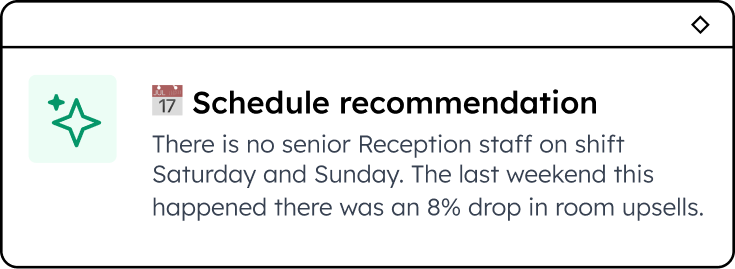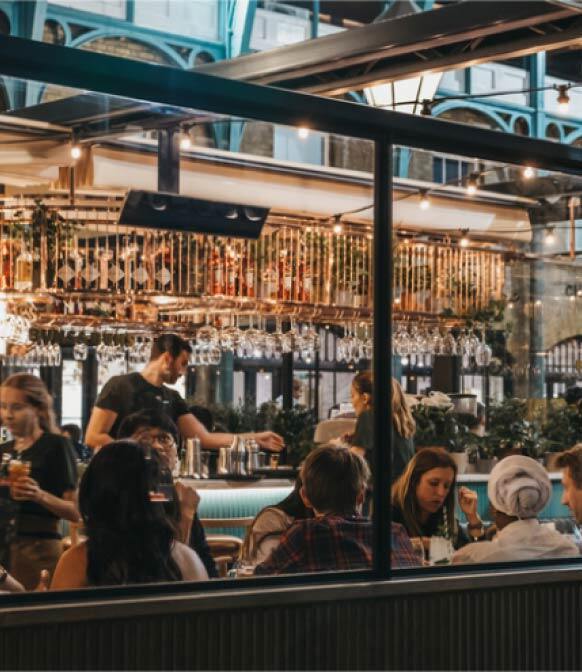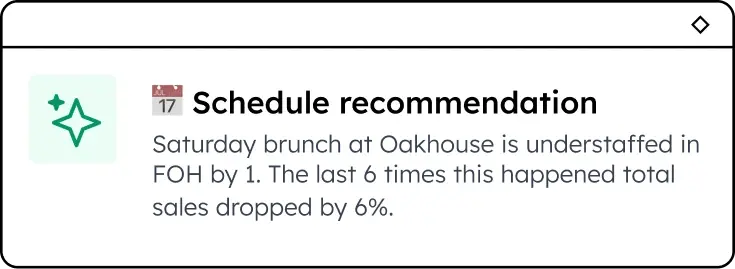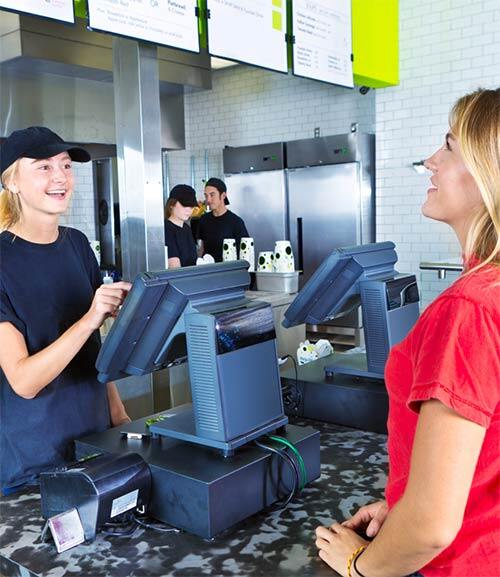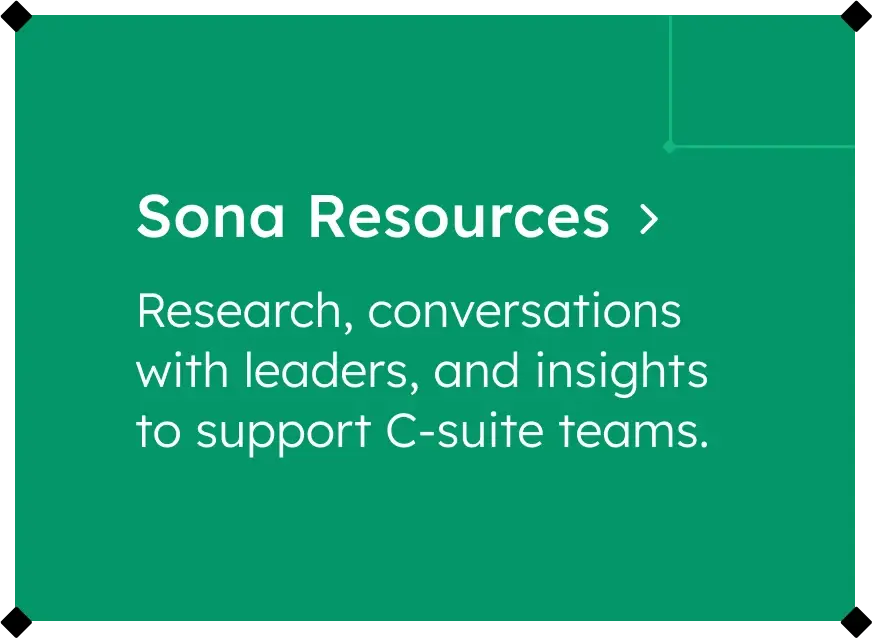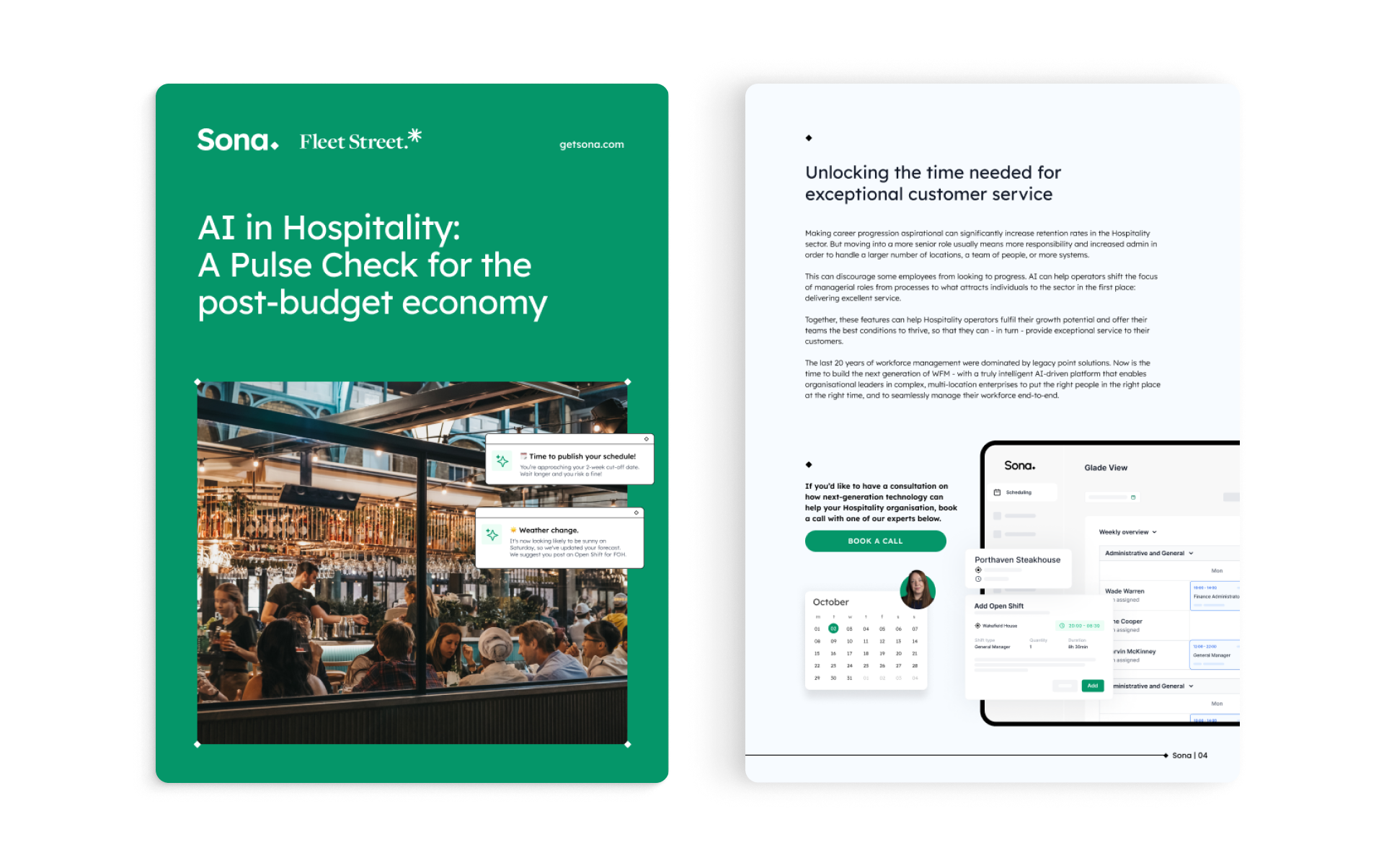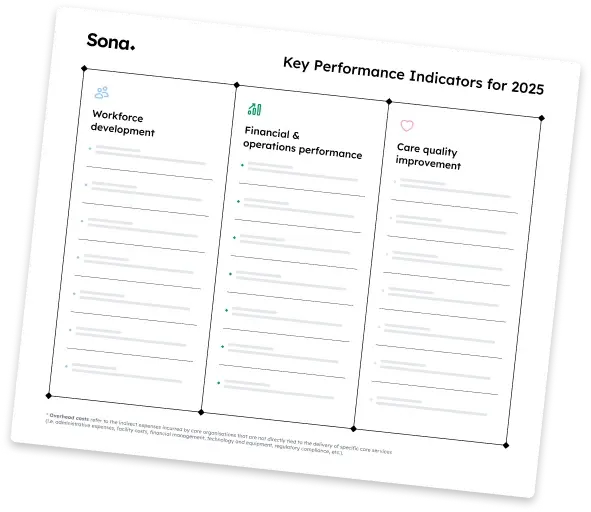The strategies that drive a high performance People culture
Steve Rockey, People Director at The PIG Hotels, is joined by Sona's VP of Hospitality, Paul Watson, in conversation on the culture strategies that deliver high performance teams.
4 minute read
Preserving culture while scaling, selecting tech tools to enhance—not replace—human-centred management, and leveraging AI to streamline routine tasks - these were the topics explored in our most recent webinar.
Steve Rockey, People Director at The PIG Hotels, and Paul Watson, VP of Hospitality at Sona, spotlighted how a balanced approach between technology and team engagement can drive success, even in a rapidly moving industry. Here’s a closer look at the strategies they recommended.
Founder-led values are foundational to culture
[0:05 - 7:00]
The webinar began with an exploration of how culture sustains an organisation’s growth and helps maintain quality. Steve Rockey, People Director at the PIG Hotels, led by describing how the PIG's unique culture can be traced back to the company’s founder, Robin Hudson, who instilled a set of core values from day one.
“It’s a founder-led business, and we’re trying to stay close to those original principles,” Steve shared. He emphasised that as the company expands, it’s essential to stay aligned with the founder’s intent, describing it as staying “no more than two steps away” from his approach.
This sentiment sets the tone for how the PIG Hotels actively nurture a value-driven, consistent guest experience, ensuring that the brand’s ethos stays intact throughout changes and growth.
Steve explained that in the case of The PIG, this means sticking to their principle of nurturing homegrown talent and displaying generosity. The conversation continued then with how to grow the team consistently without diluting the culture they worked hard to craft.
Prioritising internal promotions to drive engagement and growth
[12:00 - 18:00]
Promoting from within is a core strategy at the PIG Hotels, particularly for building loyalty and strengthening the culture. Steve highlighted how internal growth can provide a sense of belonging and alignment with company values:
“Our mission is to grow talent from within,” he explained, noting that this not only helps the company maintain its standards but also manages hiring costs.
The PIG measures team engagement score against guest satisfaction and these two ladder up to the exceptional experience they're known to provide. Steve explains this as:
“An engaged team makes for happier guests. As the team continues to grow, we're looking to balance internal promotions with external recruits, so that we continue to bring in fresh outlooks while maintaining the foundation we've already built."
For The PIG Hotels, fostering internal promotions reinforces their mission and allows team members to grow with the company, offering stability in a sector known for high turnover rates.
Measuring success across multiple locations
[18:00 - 25:00]
The discussion then shifted to the challenges of measuring success across multiple hotel locations. Steve pointed out that while metrics are useful, each PIG location has its own set of unique characteristics that make a one-size-fits-all approach unrealistic.
“Each location has its own set of problems that are quite bespoke to it,” he explained. For example, seasonal locations might require a different KPI structure than urban sites, and his leadership team adjusts benchmarks accordingly.
By tailoring metrics to each site’s particular needs, The PIG can ensure that every location is evaluated fairly and accurately, balancing individuality with overall quality standards. Sometimes this means creating specific KPIs that break down the overall picture.
The speakers then took a question from the chat about how to balance head office culture with onsite staff if they feel disconnected. Steve explained that this is where core values must run through the entire organisation and that they’ve “accepted that different functions need different things”.
Paul agreed that tailoring elements of the culture to what teams need to ensure they perform as brilliantly as they can is a vital part of building cultural cohesion and that technology can support throughout.
Embracing AI as a support, not a substitute
[29:00 - 38:00]
AI was emphasised as a valuable support tool rather than a substitute for human decision-making. Steve acknowledged the hype around AI but shared a practical perspective:
“It’s about steering the ship rather than taking over the helm.”
Paul explained how AI can help highlight patterns—like high turnover or absenteeism—that might otherwise go unnoticed. This then allows managers to address issues proactively. Both agreed and stressed that Hospitality is ultimately a people-focused industry, and while AI provides valuable insights, human input is essential for a genuinely effective outcome.
Prepare for seasonal demand with flexible staffing
[43:00 - 50:00]
Finally, the conversation addressed the complexities of preparing for seasonal demand, especially as consumer behaviour becomes more last-minute. Steve described how The PIG Hotels adapt by using flexible staffing models to respond to fluctuating bookings:
“We’re seeing more bookings coming in at the last minute than in previous years,” he noted, explaining how the team adjusts staffing to maintain quality without overcommitting resources. Flexible scheduling, Steve emphasised, is key to balancing quality service with operational efficiency, especially during high-demand periods like the holiday season. Paul went on to explain how an efficient tech stack can help operators meet the challenges of seasonality and offer staff the flexibility they need to balance their personal lives with their professional ambitions.
Balancing growth, culture, and technology
Overall, Steve’s insights stressed the value of a balanced approach to growth, culture, and technology. Whether nurturing internal talent, adopting KPIs to suit each location, or incorporating AI thoughtfully, the key takeaway was clear: success in hospitality requires a blend of tradition, adaptability, and modern solutions—all working in harmony to create a memorable guest experience.
Enjoyed this article? Let's stay in touch 👋
If you liked this article, why not subscribe to our newsletter to get the latest news and views delivered straight to your inbox?

